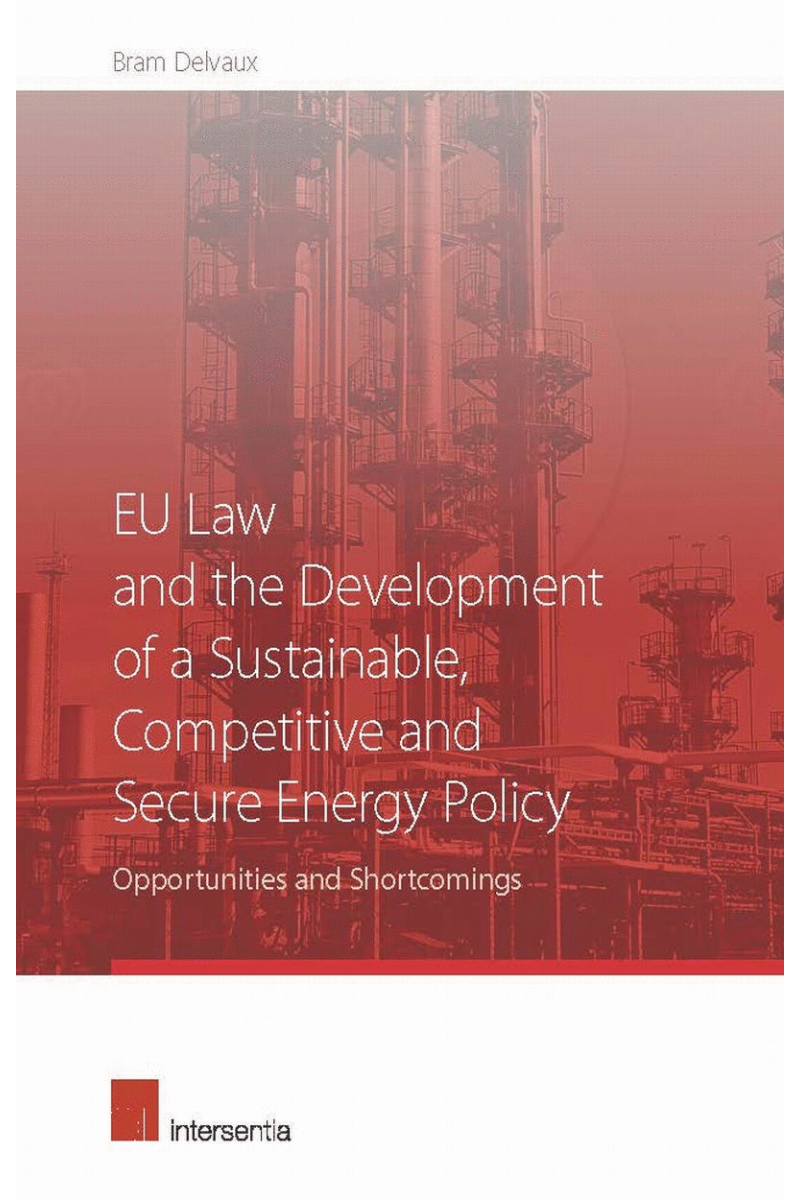 maestro
mastercard
visa
maestro
mastercard
visa

EU Law and the Development of a Sustainable, Competitive and Secure Energy Policy
Opportunities and Shortcomings

At the moment, and in the longer run, the energy and climate change challenge is one of the greatest tests which the EU and its Member States are facing. The need to deliver the triple objectives of the EU’s energy policy, namely a competitive, secure and sustainable energy supply, is stronger than ever. It will take decades to steer our energy system into a more secure and sustainable system. However, the decisions needed to set the EU and its Member States on the right path should be taken now. To ensure that today’s customers and those of tomorrow are supplied with competitively priced, secure and sustainable supplies of electricity, the European energy market requires an over-arching EU legal regulatory framework.
An efficient EU regulatory framework for energy law and policy will not only allow the EU and its Member States to achieve the triple objectives, but will also generate the right investment signals for potential investors. It should provide all the market players, such as generators and network operators, with real and effective incentives to invest in the EU energy market.
This book analyses whether the current EU regulatory framework for energy law and policy suffices to address the triple objectives of the EU’s energy policy, or by contrast, whether changes to that framework are needed.
About this book
‘This book is one of the first to focus on the delivery of EU energy policy and assess whether the European Union has the current legal framework to deliver the triple objectives of EU energy policy- a competitive, secure and sustainable energy supply. […] Overall, this is a comprehensive overview of the European Union's attempts to tackle the legislative basis for the three central aims for EU energy policy- to achieve a competitive, secure and sustainable energy supply. It is an engaging account and identifies all the central legal developments over the last two decades. It is significant that EU energy policy is considered in its entirety and that it is more than just about the internal market and competition. […]In particular, it will be significant to the literature that focuses on the EU energy policy trilemma (triangle) of aiming to achieve a competitive, secure and sustainable energy supply. For scholars and practitioners, the book provides a comprehensive view of policy and legislative development since the year 2000 in the energy sector. It will be a valuable source that identifies key developments but arguably not for those wishing for more insight or discussion on the issues. Importantly, what a reader will find is a text that moves the debate on EU energy policy beyond that of just the internal market and competition. In addition, the inclusion and treatment of energy infrastructure in several parts of the hook is commendable. Other notable features are the detailed discussion on law and sustainability and climate change, and the treatment of energy post the Lisbon Treaty.
There are few recommendations in the literature as of yet on improvements to the legislative basis for EU Energy Policy, so this is the one of the most important contributions of the book to the literature. An evaluation of what is proposed by the author is something for future researchers to conduct! To conclude for the legal researcher or practitioner, this will be a valuable addition to their library, and one that is very informative, readable and provides several possible new directions for EU energy law and policy.’
Raphael J. Heffron in IELR (2014) 43
| Type of product | Book |
|---|---|
| Format | Hardback |
| EAN / ISSN | 9781780680644 |
| Weight | 918 g |
| Status | Temporarily unavailable |
| Number of pages | xii + 446 p. |
| Access to exercice | No |
| Publisher | Intersentia |
| Language | English |
| Publication Date | May 31, 2013 |
| Available on Strada Belgique | No |
| Available on Strada Europe | No |
| Available on Strada Luxembourg | No |
Downloads
- Table of Contents
- Chapter 1. General introduction
- Chapter 2. Objectives of the European energy policy
- Chapter 3. Key EU secondary legislation in the energy field
- Chapter 4. Principles of EU law and legal bases in the TFEU allowing Union action in the fi eld of energy prior to the Lisbon Treaty
- Chapter 5. Union competences in the energy field after the adoption of the Lisbon Treaty
- Chapter 6. Legal and institutional options for a European energy framework
- Chapter 7. General conclusion
- Bibliography
- Index